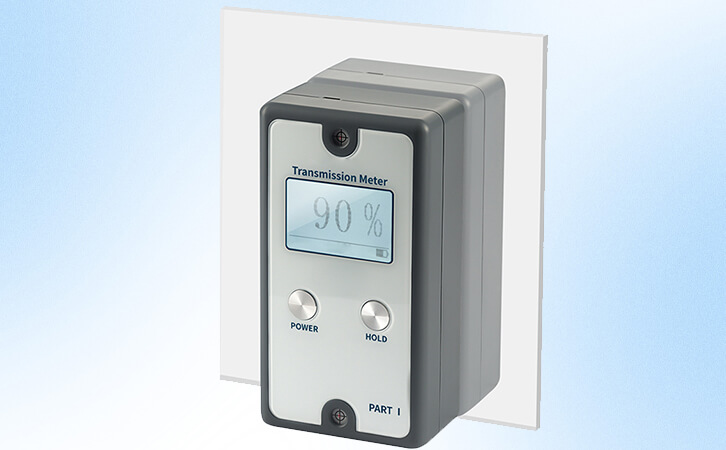
86110 Light Transmittance Meter
Test the VLT of automotive front windshield
Three-way test light source, strong anti-interference ability
The main and auxiliary machines are separated and rely on magnetic force to absorb
Enable to lock the data for easy reading
86110 wireless split type light transmittance meter is mainly used for light transmittance detection of transparent materials such as glass, acrylic and film. This car window tint light transmittance meter has three independent test units. The displayed visible light transmittance is the average of three measurement data. The instrument use a visible light source to illuminate the tested transparent materials. The sensor detects the incident light intensity of the light source and the light intensity after passing through the tested transparent materials, expressed as a percentage.
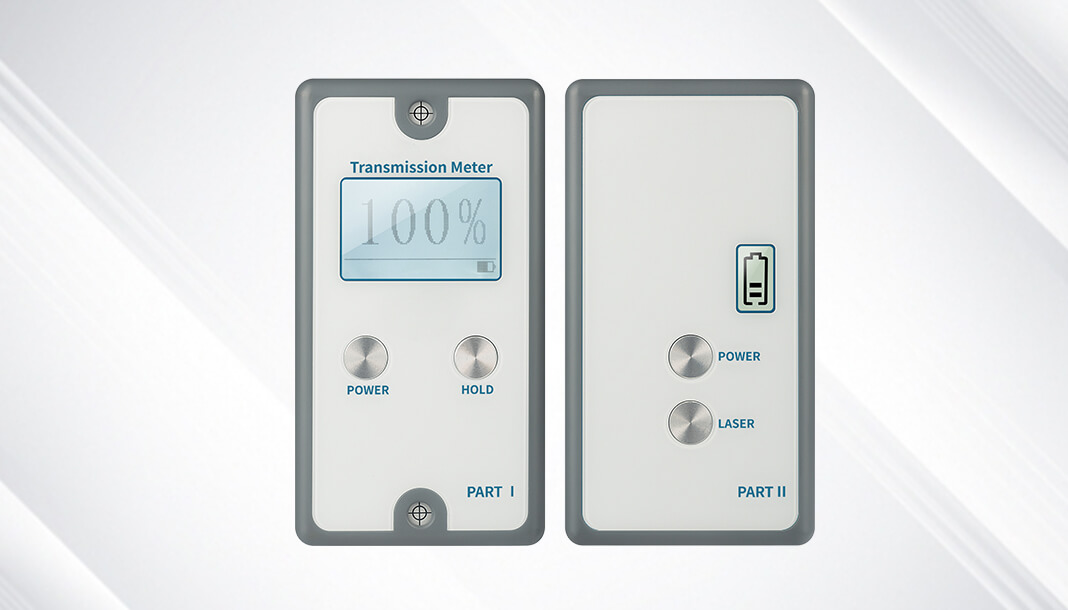
Application
It is widely used in the transmittance test of installed materials such as automobile front shield and curtain wall glass.
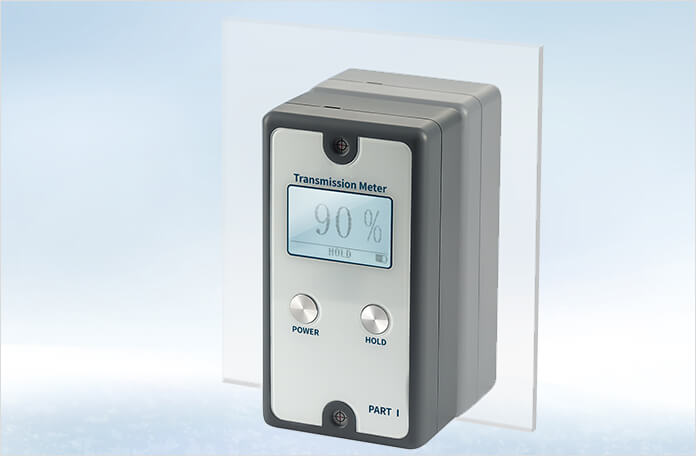
86110 tests transparent glass
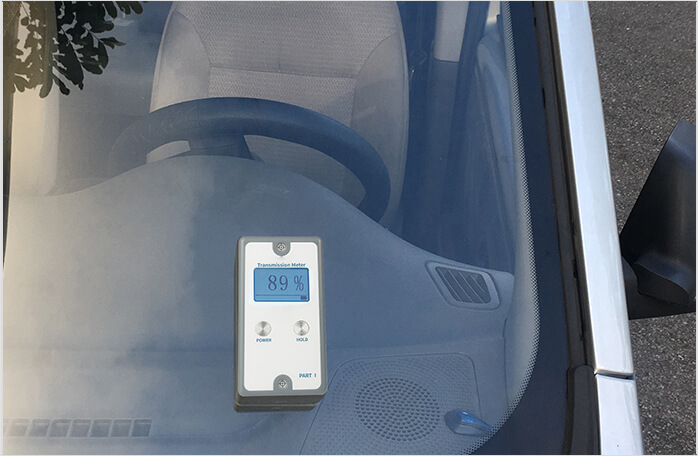
86110 tests windshield
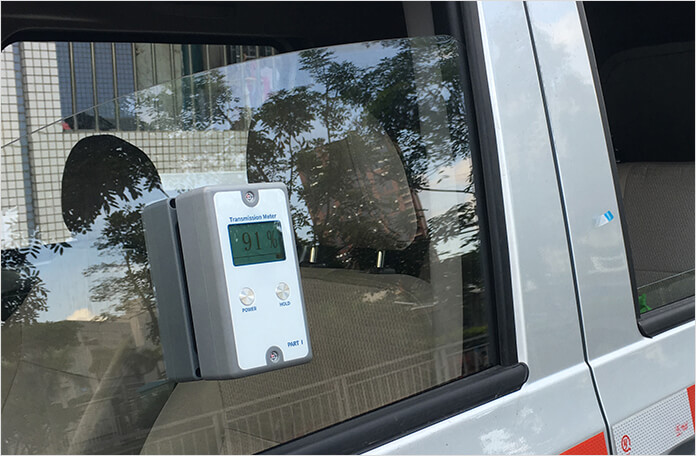
86110 tests side windshield
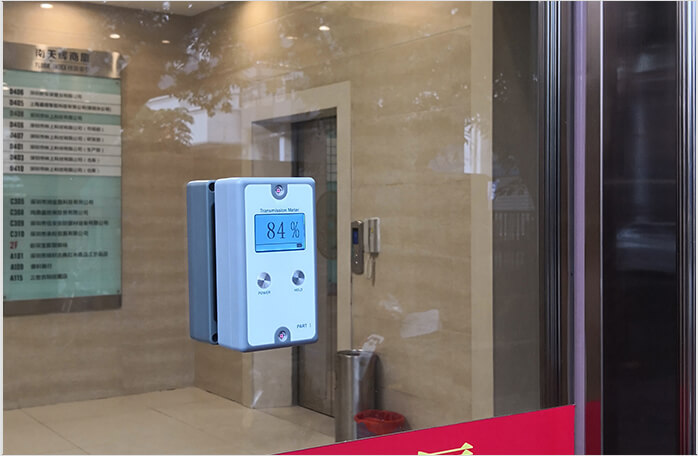
86110 tests immovable glass
Parameters
| Parameter | Value |
|---|---|
| Spectral Range | 380nm-760nm full wavelength, in line withCIE photopic luminosity function |
| Measurement Accuracy | ± 2% (colorless and uniformtransparent materials) |
| Resolution | 0%~10%: 0.1%; 10%~100%: 1% |
| Test Samplesize | Greater than 40mm*40mm |
| Power Supply | Built-in lithium rechargeable battery |
| Dimension | 130mm * 70mm * 84mm (L*W*H) |
| Weight | 630g |
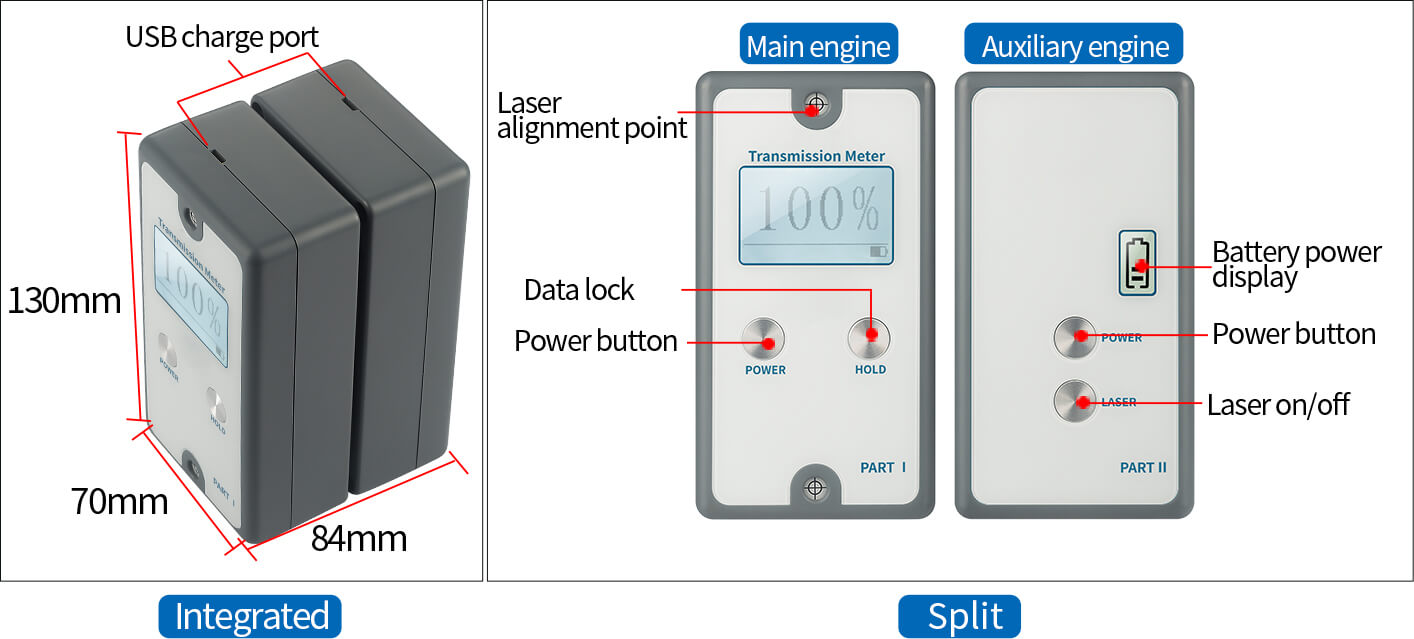
Features
Split design convenient for measuring
The split design of the main and auxiliary machines is convenient for on-site measurement, such as the transmittance measurement of the car front windshield and the building glass
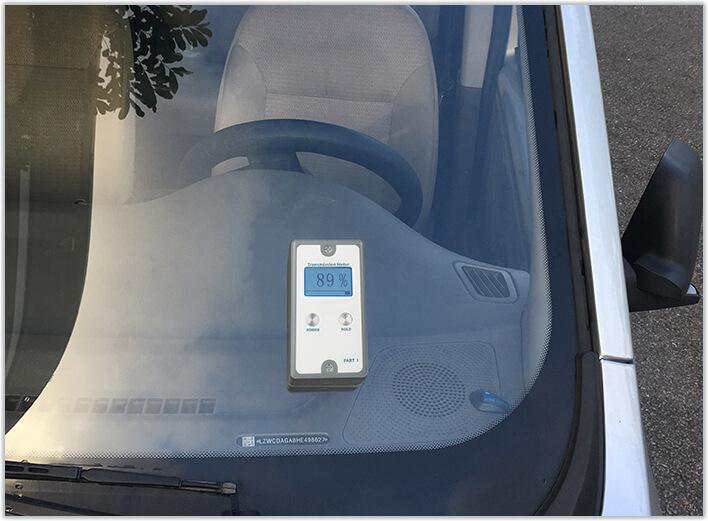
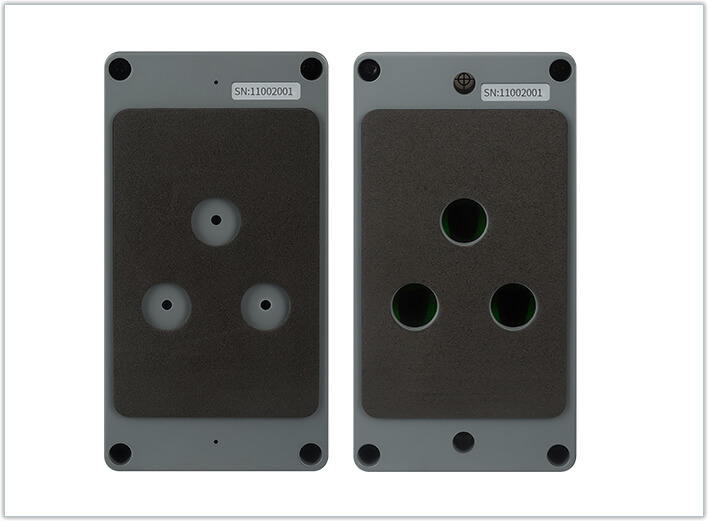
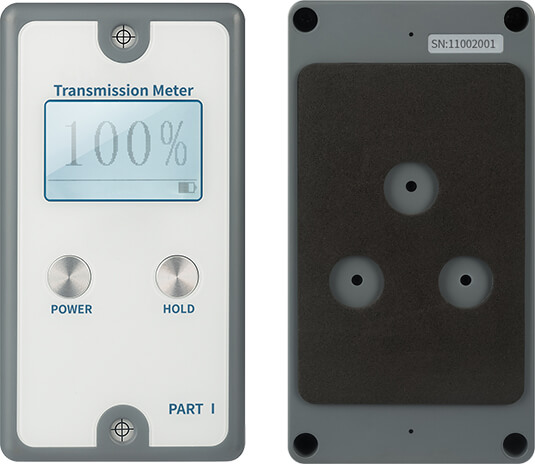
Three-way test light source, strong anti-interference ability
It adopts three-way visible light source measurement. The displayed light transmittance is the average value of three-way measurement data. The measurement result has strong anti-interference ability
Energy-saving, environmental and easy charging
The car window tint visible light transmittance meter has built-in rechargeable lithium battery. There is no need to replace the battery, the standard one-to-two USB charging cable can be used to charge the main and auxiliary machines at the same time. The instrument is easy to use and energy-saving
Laser positioning, accurate testing
The laser alignment function ensures that the main and auxiliary machines are accurately aligned during the measurement process, thereby ensuring the accuracy of the measurement
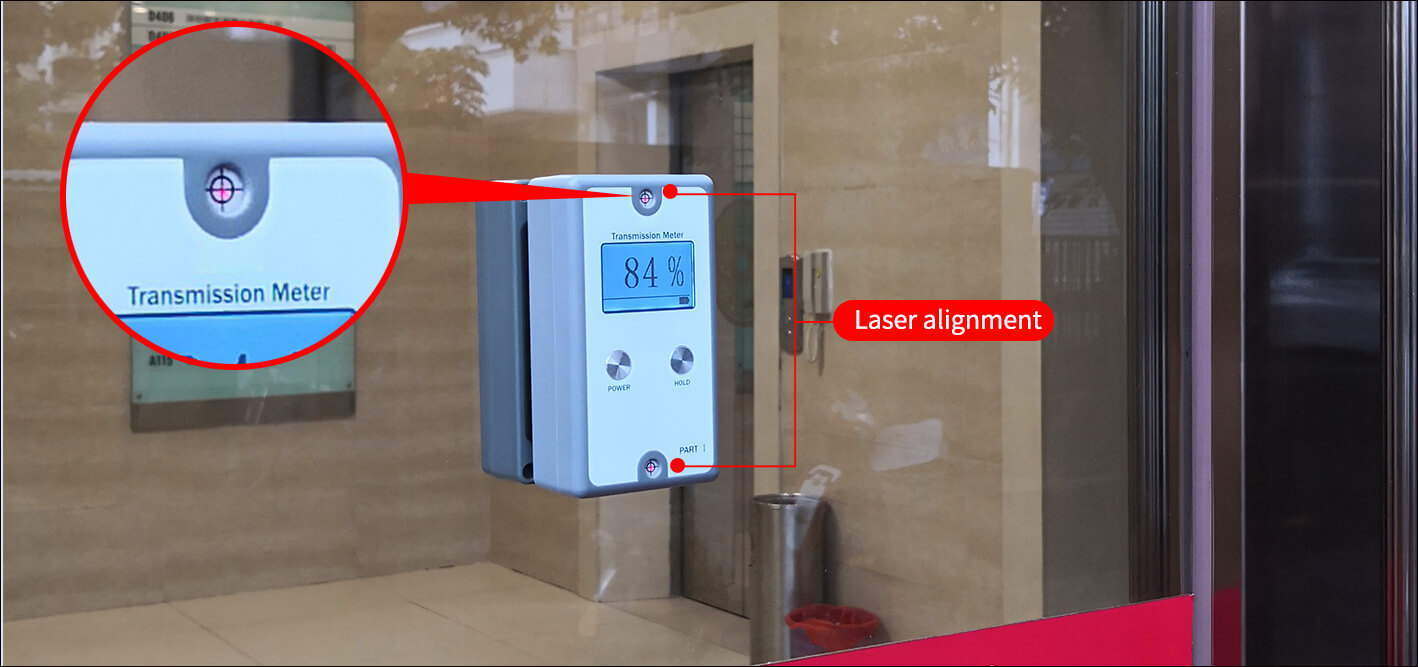
Data locking function for easy reading
With data lock function, the light transmittance meter is convenient for data reading. The data remain on the interface after taking away the test materials
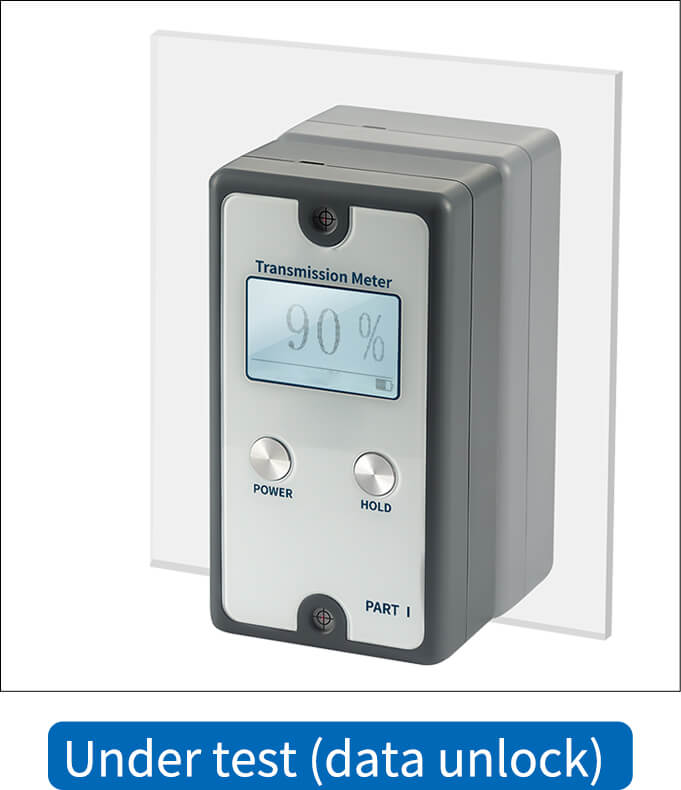
Data Unlock
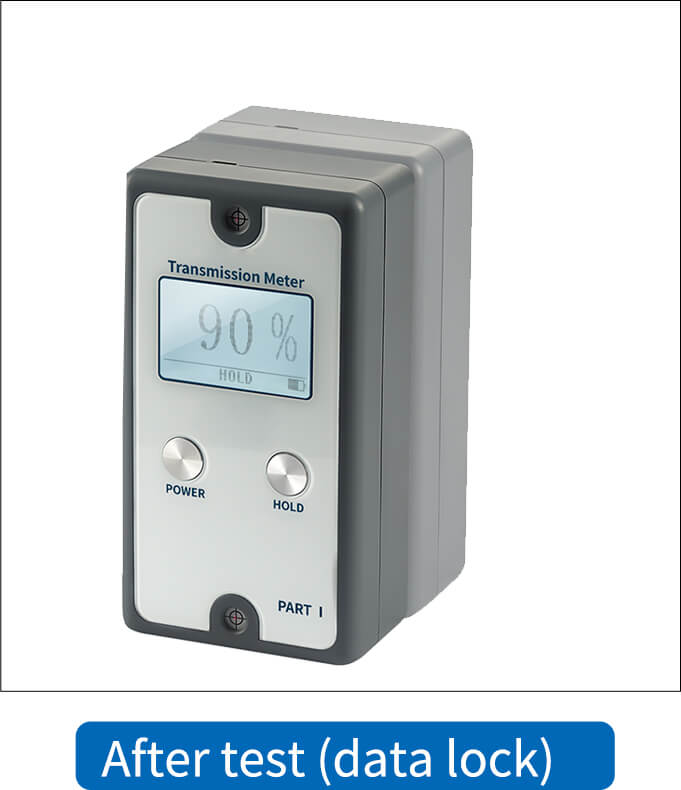
Data locking
Qualifications and Standards
The 86110 light transmittance meter conform to the following standards:
JJF1225-2009 Calibration Specification for Transmittance Meter of Automobile
Packing
| No. | Description | Quantity | Unit |
|---|---|---|---|
| 1 | 86110 Transmission Meter | 1 | pcs |
| 2 | User Manual | 1 | pcs |
| 3 | Certificate / Warranty Card | 1 | pcs |
| 4 | Charger | 1 | pcs |
| 5 | One To Two Charge Cable | 1 | pcs |
| 6 | Packing Box Dimension 25*21*7 cm(L*W*H) | 1 | pcs |
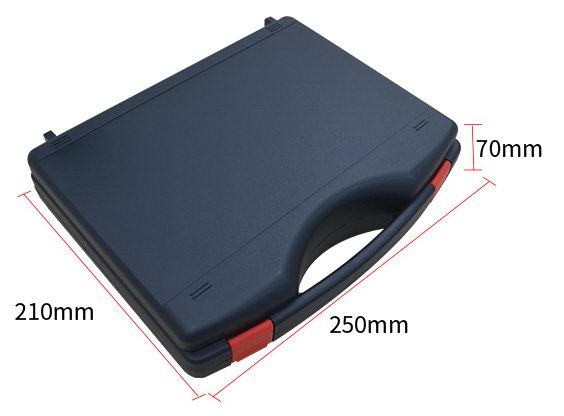
FAQ
-
1. What is the maximum glass thickness that 86110 can measure?
The instrument use a parallel light path and the thickness of the test sample can reach more than 20mm. However, when measuring glass with a thickness greater than 20mm. The main body and auxiliary machine of the instrument are not magnetic enough to be automatically adsorbed on both sides of the glass. The user need to hold the instrument for testing.
-
2. The difference between 86110 and 86116
86110 light transmittance meter use the design of main and auxiliary machine separation, no connecting line and contains three independent light sources. The measured light transmittance value is the average of the three data. The size of the measured material needs to be greater than 40*40mm. It is suitable for measuring car front windshield and installed architectural glass, etc.
The 86116 light transmittance meter has a connecting wire and a fixed base. The accuracy is higher than that of the 86110. It is mainly used for the light transmittance detection of glass, organic materials, window films and other transparent materials. It can test transparent materials with a diameter greater than 10mm.